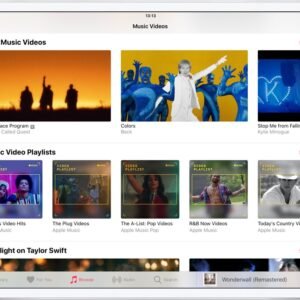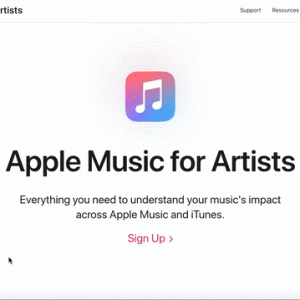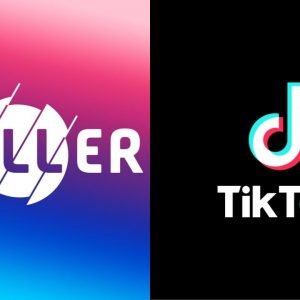In this article, we'll explore and compare the features, functionalities, and target audiences of iTunes and Apple Music to help you make an informed decision about which platform best suits your music preferences.
Difference Between iTunes and Apple Music: Understanding the Two Music Giants
In the rapidly evolving digital music landscape, iTunes and Apple Music have stood as pioneering giants, revolutionizing the way we consume music. Both services have emerged from Apple Inc., a company known for its innovative products and services. While they share some similarities, there are significant differences between the two platforms that cater to the different needs of music enthusiasts.
-
iTunes: A Classic Digital Music Store
iTunes, launched in 2001, was one of the first legal digital music stores and played a pivotal role in shaping the music industry's digital transition. In its earlier days, iTunes allowed users to purchase individual songs or full albums and download them to their devices for offline playback. This model, often referred to as the "pay-per-download" model, became immensely popular, and millions of music lovers built extensive digital music libraries using iTunes.
It is used to play, download, and organize digital audio and video (as well as other types of media available on the iTunes Store) on personal computers running the OS X and Microsoft Windows operating systems. The iTunes Store is also available on the iPhone, iPad, and iPod Touch.
Key Features of iTunes:
a. Digital Music Store: iTunes acts as a digital storefront where users can browse and purchase individual songs or albums. These purchases are stored in the user's iTunes library and can be synced across their devices.
b. Offline Playback: Once a user buys a song or album from iTunes, they can download it to their device for offline listening. This feature is particularly useful for those who have limited internet access or prefer not to use streaming services.
c. Library Organization: iTunes offers robust library management, allowing users to create playlists, categorize music by genre, artist, and album, and easily transfer their collections to other devices.
d. Digital Rights Management (DRM): In the past, iTunes used DRM technology to protect music files from unauthorized distribution. However, Apple has since phased out DRM for music purchased from iTunes, giving users more freedom to use their music across various devices.
-
Apple Music: Your Gateway to Unlimited Music Streaming
Apple Music, launched in 2015, marked Apple's entry into the music streaming arena. Unlike iTunes, which focuses on individual purchases, Apple Music operates on a subscription-based model, granting users access to a vast library of music for a monthly fee. This shift in approach reflected the changing preferences of music listeners who sought convenience and variety in their music consumption.

The service includes the curated Internet radio station Beats 1, the blog platform Connect allows artists to share their posts, photos, videos, and tracks with fans, and Radio which incorporates some aspects of iTunes Radio. Apple Music provides music recommendations based on the user's tastes and is integrated with Siri voice commands.
Key Features of Apple Music:
a. Music Streaming Library: Apple Music boasts an extensive catalog of millions of songs that users can stream on-demand. From the latest chart-toppers to timeless classics, the platform caters to diverse musical tastes.
b. Personalized Playlists: Apple Music utilizes sophisticated algorithms to curate personalized playlists based on users' listening habits and preferences. These playlists include "For You," "Favorites Mix," and "New Music Mix," among others.
c. Radio Stations and Beats 1: Apple Music offers a selection of radio stations curated by music experts, as well as Beats 1, a global live radio station with celebrity hosts and exclusive interviews.
d. Offline Downloads: Similar to iTunes, Apple Music allows users to download songs and playlists for offline listening. This feature is particularly handy for users who wish to enjoy music during commutes or in areas with limited internet connectivity.
e. Family Sharing: With an Apple Music family subscription, up to six family members can share one account, making it a cost-effective option for households.
Comparison between Apple Music and iTunes:
Now that we've covered the main features of both iTunes and Apple Music, let's compare the two platforms across different aspects:
- Business Model:
- iTunes: Pay-per-download model.
- Apple Music: Subscription-based model.
- Access to Music:
- iTunes: Users purchase individual songs or albums to own them permanently.
- Apple Music: Users pay a monthly subscription fee for unlimited access to the entire music library, but they lose access if they cancel the subscription.
- Cost:
- iTunes: Costs vary based on the number of songs or albums purchased.
- Apple Music: Fixed monthly subscription cost with a free trial period.
- Music Discovery:
- iTunes: Users need to actively search for and purchase music they want to explore.
- Apple Music: Personalized playlists, recommendations, and curated radio stations enhance music discovery.
- Library Management:
- iTunes: Users have complete control over their purchased music and can organize their library as they see fit.
- Apple Music: Users can't organize purchased music manually, but they can create playlists and add songs to their library.
iTunes vs Apple Music: What’s the Difference?
- iTunes is all about media ownership – music, movies, TV Shows, podcasts, etc. It’s a one-stop digital media library and mobile device management software that provides a more comprehensive service than Apple Music does. Apple Music, on the other hand, is a stand-alone music streaming service that is all about music.
- iTunes can be used as a portable media player to listen to your favorite music on the go, whereas Apple Music cannot be used as a media player.
- iTunes offers a plethora of media resources including music, movies, TV Shows, Podcasts, Radio, etc. for download and purchase. Apple Music, on the other hand, is a subscription-based music streaming service that charges its users $9.99 per month for its services. It also offers a $14.99 per month family plan for its users.
- iTunes allows you to organize and manage your media library while allowing you to sync your media content between your Apple devices and computer. However, Apple Music cannot do that.
- You can access the iTunes Store through the iTunes software itself. If you cannot find anything in the iTunes library, you can search for them in the iTunes Store. Apple Music, on the other hand, is a dedicated music-streaming service offered by Apple.
iTunes vs. Apple Music: Comparison Chart
| iTunes | Apple Music |
| iTunes is a media library, media player, online radio station (Beats 1), and much more. | Apple Music is a separate music streaming service developed by Apple Inc. |
| iTunes can be used as a media player to stream your music on the go. | Apple Music cannot be used as a media player. |
| It’s a mobile device management software developed by Apple Inc. | It’s all about streaming music and videos. |
| Services are free of cost. You only have to pay for the purchase of media content. | It charges $9.99 per month for its services ($14.99 per month for the family plan). |
| iTunes includes everything music, movies, TV Shows, podcasts, apps, ringtones, and more. | Apple Music is a music and video streaming service. |
| Music can be synced between Apple devices and computer. | Music cannot be synced to Apple devices such as iPod Shuffle, iPod Nano, iPad, iPhone, etc. |
Conclusion:
In conclusion, while both iTunes and Apple Music hail from the same parent company, they cater to different music consumption preferences. iTunes remains a great choice for those who prefer to own their music, cherish album collections, and want offline access without recurring payments. On the other hand, Apple Music is ideal for music enthusiasts who crave unlimited streaming, personalized recommendations, and the convenience of discovering new artists and songs effortlessly.
While Apple Music is a stand-alone music and video streaming service that charges its users $9.99 per month for its services, iTunes is more than just a media player. iTunes includes everything from music and movies to TV Shows and Podcasts. While Apple Music is all about music streaming, iTunes is both a virtual media player and an all-in-one digital media library.
Ultimately, the choice between iTunes and Apple Music boils down to individual preferences and how one prefers to experience music. Whichever option you choose, the world of music has never been more accessible and enjoyable, thanks to these revolutionary platforms brought to you by the visionary minds at Apple Inc. So, whether you groove to the classics or seek the latest chart-toppers, embrace the power of digital music and let your musical journey unfold with 1710Media!
Online Music Distribution
With our Digital Music Distribution service, 1710Media helps monetize your music on 100+ streaming and downloading platforms around the world, including; Spotify, iTunes & Apple Music, Youtube & Youtube Music, Tidal, Deezer, Amazon & Amazon Music, BoomPlay, Facebook & Instagram, Tiktok & Resso, Triller, Pandora, and everywhere else that matters.
We facilitate the Music Distribution process, making it easy for labels and artists to distribute their music digitally across all services and platforms.
What's included?
- 100+ Streaming and Downloading Platforms.
- Youtube Monetization: Get paid when other people use your music on YouTube.
- Social Media Monetization: Increase your music revenues on TikTok, Facebook, Instagram, and collect from other user-generated content platforms.
- Pre-order and Pre-save option available.
- Access to Promolinks (Fanlink).
- Lyrics submission to; Musixmatch, LyricsFind, Genius, and other platforms.
- Artist account Verification: We may assist with the application for verification on Instagram, Facebook, Youtube, Apple Music, Spotify, Tidal, Amazon Music, Deezer, Boomplay, Audiomack, etc.
- 2 – 5 days delivery on all platforms.
- Youtube Official Artist Channel: We offer assistance in claiming your Official Artist Channel on YouTube, this is known as an ‘OAC’.
- Dashboard & Trends Report: Login access to your Dashboard. See daily stats on how your releases are doing with our partners.
- Retain 90% of royalty, every month.
GET STARTED NOW






